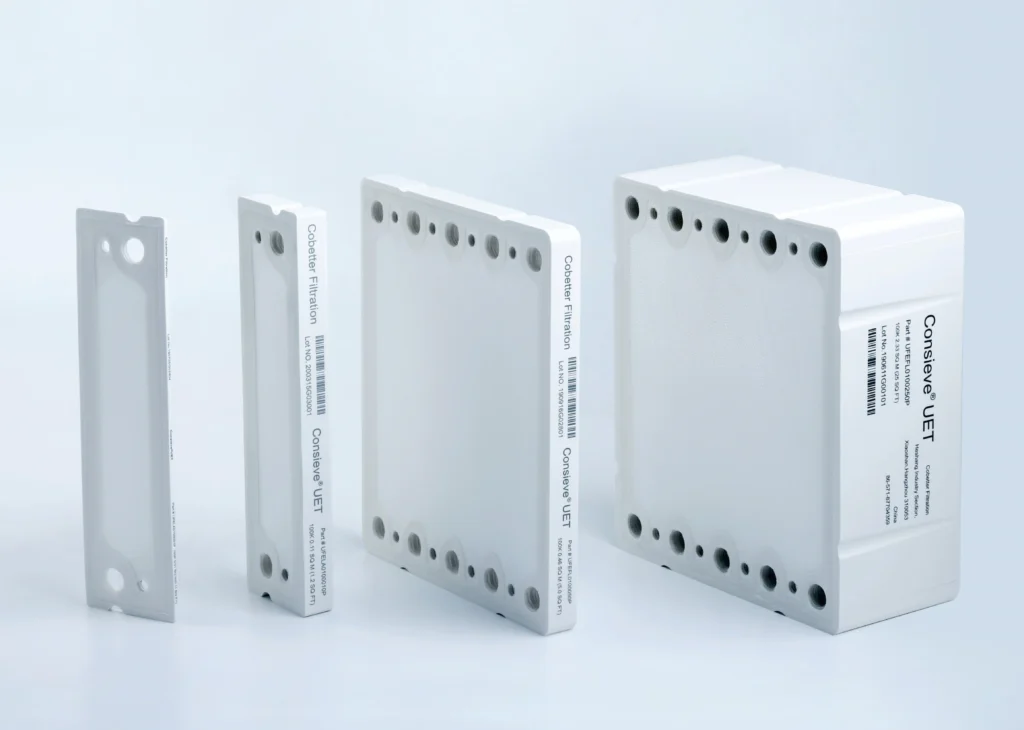The biotechnology revolution has achieved different heights of success and innovation. Filters have always been a very important part of the biotechnology industry.
TFF stands for Tangential Flow Filtration, with these types of filters, biotechnologists can separate biomolecules and get accurate results in Filtration experiments. This blog will discuss why quality TFF filters are important.
What are TFF Filters?
Tangential flow filtration is a membrane-based technology for concentration, diafiltration and separation. These TFF filters are typically rated for molecules within the molecular weight range of 1-1000 KDa. In contrast to traditional dead-end filtration methods, tangential flow filtration involves the fluid moving in parallel to the membrane surface. This creates a transmembrane pressure difference that pushes a portion of the solution through the filter membrane while the retained fraction recirculates within the system.
Throughout the entire process, the liquid continually traverses the membrane surface. This continuous flow minimizes the formation of a gel layer on the membrane and prevents rapid particle buildup, thus ensuring a consistent filtration rate, and achieves concentration of the starting fluid.
Advantages of TFF Filters
Tangential flow filtration or TFF filters in Australia provide numerous important benefits in various sectors, including biotechnology, pharmaceuticals and food and beverage. These benefits are summarised as follows:
Size-Selective Filtration
TFF filters control the size of molecules or particles that can pass through the membrane. This allows for the isolation and concentration of certain components within a mixture according to their molecular weight, making it excellent for purifying biomolecules such as proteins, DNA, and viruses.
Continuous Processing
The tangential flow of liquid over the membrane surface aids in preventing fouling material formation, guaranteeing continuous and efficient processing.
High Recovery Rates
Because TFF reduces the danger of clogging or fouling the membrane, it provides high recovery rates for important goods. Consequently, less product is lost during filtration, increasing production and reducing waste.
Scalability
TFF systems may easily be scaled up or down to meet different processing volumes, so they are suited for lab-scale research and large-scale industrial production.
Reduced Shear Stress
TFF filters in Australia reduce shear stress on sensitive biomolecules as compared to centrifugation procedures. This delicate treatment aids in the preservation of sensitive biological compounds’ structural integrity and biological activity.
Flexible Membrane Selection
TFF systems offer flexible selection of membrane materials with various pore sizes, enabling exact adaptation to particular separation and filtering requirements. This adaptability increases TFF’s applicability in a variety of applications.
Diafiltration and Buffer Exchange
TFF is an effective diafiltration and buffer exchange approach, allowing the removal of salts, tiny molecules, or undesirable components from a sample while preserving the target molecules. This is essential in research, diagnosis, serum production and pharmaceutical production.
Reduced Processing Time
Compared to typical batch procedures, TFF filters may dramatically reduce processing times, resulting in speedier product development and shorter turnaround times in manufacturing operations.
Improved Product Quality
TFF’s low shear process can increase product purity and overall quality, fulfilling stringent regulatory standards in areas such as biopharmaceuticals and biotechnology.
If you are looking for TFF filters in Australia, visit the website of www.copure.com.au
If it is a daunting task for you, Copure is your one-stop solution. We offer premium filters across Australia. So contact us to assist you with your filter needs.

